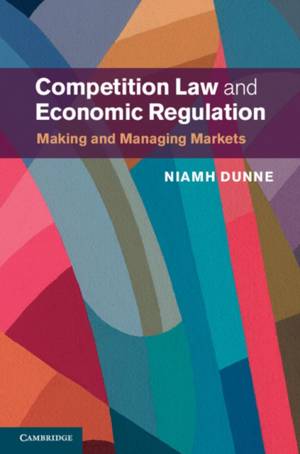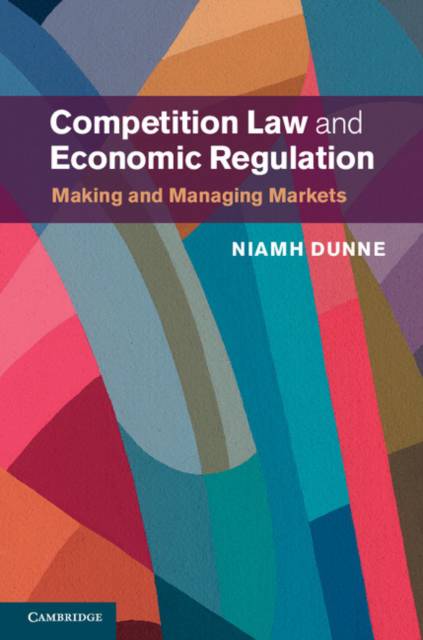
Je cadeautjes zeker op tijd in huis hebben voor de feestdagen? Kom langs in onze winkels en vind het perfecte geschenk!
- Afhalen na 1 uur in een winkel met voorraad
- Gratis thuislevering in België vanaf € 30
- Ruim aanbod met 7 miljoen producten
Je cadeautjes zeker op tijd in huis hebben voor de feestdagen? Kom langs in onze winkels en vind het perfecte geschenk!
- Afhalen na 1 uur in een winkel met voorraad
- Gratis thuislevering in België vanaf € 30
- Ruim aanbod met 7 miljoen producten
Zoeken
€ 213,45
+ 426 punten
Omschrijving
Niamh Dunne undertakes a systematic exploration of the relationship between competition law and economic regulation as legal mechanisms of market control. Beginning from a theoretical assessment of these legal instruments as discrete mechanisms, the author goes on to address numerous facets of the substantive interrelationship between competition law and economic regulation. She considers, amongst other aspects, the concept of regulatory competition law; deregulation, liberalisation and 'regulation for competition'; the concurrent application of competition law in regulated markets; and relevant institutional aspects including market study procedures, the distribution of enforcement powers between competition agencies and sector regulators, and certain legal powers that demonstrate a 'hybridised' quality lying between competition law and economic regulation. Throughout her assessment, Dunne identifies and explores recurrent considerations that inform and shape the optimal relationship between these legal mechanisms within any jurisdiction.
Specificaties
Betrokkenen
- Auteur(s):
- Uitgeverij:
Inhoud
- Aantal bladzijden:
- 392
- Taal:
- Engels
Eigenschappen
- Productcode (EAN):
- 9781107070561
- Verschijningsdatum:
- 26/03/2015
- Uitvoering:
- Hardcover
- Formaat:
- Genaaid
- Afmetingen:
- 152 mm x 229 mm
- Gewicht:
- 689 g

Alleen bij Standaard Boekhandel
+ 426 punten op je klantenkaart van Standaard Boekhandel
Beoordelingen
We publiceren alleen reviews die voldoen aan de voorwaarden voor reviews. Bekijk onze voorwaarden voor reviews.









